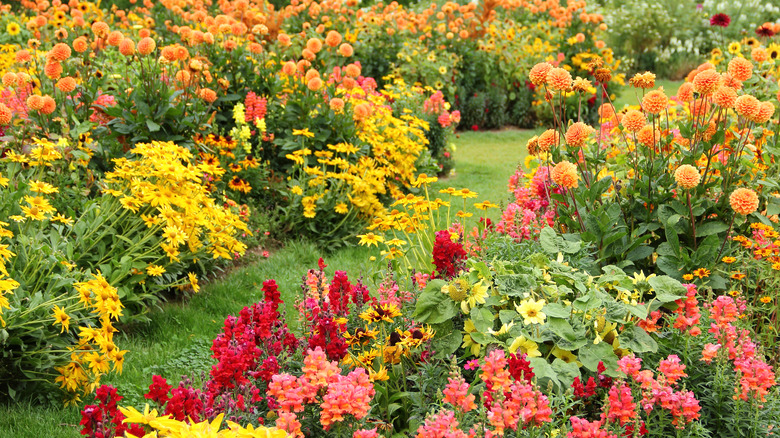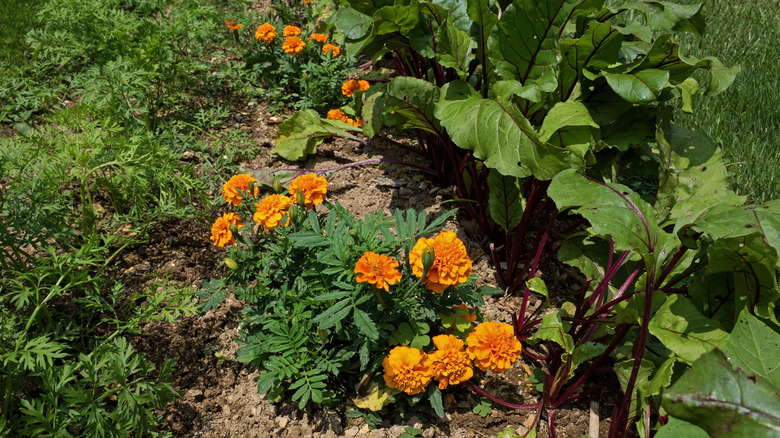The Self-Seeding Flower You Should Grow In Your Garden For Healthy Soil & Color
We may receive a commission on purchases made from links.
Self-seeding flowers are the gift that keeps on giving for gardeners, especially when you can't decide between perennial plants that come back year after year, or annuals that tend to die out after one season. The happy middle ground? Self-seeding annuals.
These blooms naturally drop seeds that sprout the following year, allowing for effortless replanting and appeal for those thinking about their garden's long-term look and vibe. Among the most beneficial of these self-seeding annuals is Calendula officinalis, commonly known as the marigold. Growing marigolds is easy, and it's a low-maintenance bloom that brings vibrant, sunset orange colors to your garden, and promotes soil health too.
Marigolds love all-day direct sunlight, and they are also very resilient. Suited to USDA Zones 2 through 11, they can tolerate a wide range of conditions, including drought, making them an ideal choice for gardeners who are just starting out or those who have seen their backyard through a fair few seasons. Their adaptability means they thrive in various climates and soil types with minimal care.
How marigolds improve soil quality
Beneath the surface, marigolds contribute to a healthier garden environment by releasing a compound called alpha-terthienyl from their roots. This naturally occurring chemical is known to fight against soil-borne diseases and pests, such as harmful nematodes. This is why marigolds are considered good companion plants, especially in vegetable gardens or mixed borders. Just be sure to plant them thoughtfully and give them enough space so that you can avoid the mistakes many people make when planting marigolds as companion plants.
Although marigolds are self-seeding, they still die back at the end of the growing season. However, this natural die-off is far from wasteful. As the marigold decomposes, it returns valuable nutrients to the soil, acting as an organic fertilizer. This decaying plant matter boosts microbial activity and enriches the soil, creating a more fertile environment not only for future marigolds but for any plants sharing the space.
By incorporating marigolds into your garden, you're not just adding seasonal color to your flowerbeds; you're investing in the long-term vitality of your soil. Whether you're growing vegetables, looking to spruce up your borders, or you simply want to support a healthier garden ecosystem, marigolds are the best of all worlds.

